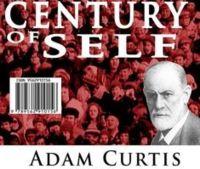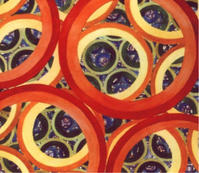|
This is my dynamic, frequently updated homepage. This is a NewsLog, also known as a WebLog or Blog.
Everything is evolving, so don't assume too much.
People to watch:
Adina Levin
Andrius Kulikauskas
Britt Blaser
Catherine Austin Fitts
Chris Corrigan
Clay Shirky
Dan Gillmor
Dave Pollard
David Allen
David Weinberger
Dewayne Mikkelson
Dina Mehta
Doc Searls
Elisabet Sahtouris
Elizabeth Lawley
Euan Semple
Florian Brody
Frank Patrick
Gen Kenai
George Dafermos
George Por
Graham Hancock
Greg Elin
Hazel Henderson
Heiner Benking
Inspector Lohman
Jean Houston
Jerry Michalski
Jim McGee
Jim Moore
John Abbe
John Perry Barlow
John Robb
Joi Ito
Jon Husband
Jon Lebkowsky
Jon Udell
Jonathan Peterson
Judith Meskill
Julian Elvé
Julie Solheim
Kevin Marks
Lawrence Lessig
Leif Smith
Letecia Layson
Lilia Efimova
Lisa Rein
Marc Canter
Mark Oeltjenbruns
Mark Pilgrim
Mark Woods
Martin Dugage
Martin Roell
Mary Forest
Matt Mower
Max Sandor
Michael Fagan
Mike Owens
Mikel Maron
Mitch Kapor
Mitch Ratcliffe
Nathalie dArbeloff
Netron
Noam Chomsky
Paul Hughes
Peter Kaminski
Phil Wolff
Philippe Beaudoin
Ray Ozzie
Raymond Powers
Rebecca Blood
Roger Eaton
Roland Tanglao
Ross Mayfield
Scott Lemon
Sebastian Fiedler
Sebastien Paquet
Skip Lancaster
Spike Hall
Steven Johnson
Stuart Henshall
Thomas Burg
Thomas Madsen-Mygdal
Thomas Nicholls
Timothy Wilken
Todd Suomela
Tom Atlee
Tom Munnecke
Tom Tomorrow
Ton Zijlstra
Lionel Bruel
Loic Le Meur
Nancy White
Mark Frazier
Merlin Silk
Robert Paterson
Colby Stuart
Nova Spivack
Dan Brickley
Ariane Kiss
Vanessa Miemis
Bernd Nurnberger
Sites to watch:
Electronic Frontier Foundation
Co-intelligence Institute
Free Expression Network
Collective Intelligence
Action without borders
Manufacturing Dissent
Explorers Foundation
Disclosure Project
ThoughtsOnThinking
Forbidden Science
Emergent by Design
Greater Democracy
Global Ideas Bank
Independent Media
Space Collective
Friendly Favors
Escape Velocity
Disinformation
Collective Web
WorldChanging
YES Magazine
Disinfopedia
NotThisBody
MetaFilter
Webcamorama
BoingBoing
Smart Mobs
Do No Harm
Imaginify
FutureHi
Openworld
Nanodot
HeadMap
Rhizome
Absara
Edge
Junto
French:
Emmanuelle
Manur
Elanceur
Loeil de Mouche
IokanaaN
Blog d'Or
Le Petit Calepin
GeeBlog
Absara
Guillaume Beuvelot
Ming Chau
Serge Levan
Jean Michel Billaut
C'est pas Mécanique

I live in Toulouse, France where the time now is:
01:11
Unique Readers:

Primarily
Public Domain
Everything I've written here is dedicated to the
Public Domain.

The quotes from other people's writings, and the pictures used might or might not be copyrighted, but are considered fair use. Thus, overall, this weblog could best be described as being:
Primarily Public Domain. |
Syndication:
 ![Validate my RSS feed [Valid RSS]](http://www.newciv.org/pic/valid-rss.png)
|
| Monday, January 22, 2007 |  |
|
|
|
 I just watched The Century of the Self, a BBC documentary by Adam Curtis. Curtis' documentaries usually present a fairly clear, but somewhat unexpected and controversial, opinion, which I usually seem to agree with. And he has a certain style, where most of the documentary is put together of footage he has dug out of BBC's archives, and he narrates them himself. I've previously seen The Power of Nightmares, which essentially outlined how the US NeoCons and certain radical militant muslim factions in the Middle East have a whole lot in common. I just watched The Century of the Self, a BBC documentary by Adam Curtis. Curtis' documentaries usually present a fairly clear, but somewhat unexpected and controversial, opinion, which I usually seem to agree with. And he has a certain style, where most of the documentary is put together of footage he has dug out of BBC's archives, and he narrates them himself. I've previously seen The Power of Nightmares, which essentially outlined how the US NeoCons and certain radical militant muslim factions in the Middle East have a whole lot in common.
The Century of the Self, on the other hand, is about how the masses are manipulated through the use of various tools and theories from psychology and the social sciences, as applied to PR and politics."This series is about how those in power have used Freud's theories to try and control the dangerous crowd in an age of mass democracy." See, he particularly tracks the legacy of Sigmund Freud, as championed by his daughter Anna and his nephew, Edward Bernays.
Bernays is considered the father of the whole subject of public relations. More directly, he became a master of mass manipulation, showing first large companies and then politicians how to effectively influence the masses."If we understand the mechanism and motives of the group mind, is it not possible to control and regiment the masses according to our will without their knowing about it? The recent practice of propaganda has proved that it is possible, at least up to a certain point and within certain limits." Before Bernays, one would sell products mostly based on their qualities. "It is really durable", "Your curtains will be more clean", etc. But he invented the whole idea of appealing to people's subconscious drives instead.
As one maybe could expect, if it is based on Freud's work, the idea was that people's subconscious minds were just a chaotic mishmash of crazy, dangerous drives, and the thing to do is to exploit them, but to keep them at bay, and to tell people what to do. He said it rather clearly in his book "Propaganda":The conscious and intelligent manipulation of the organized habits and opinions of the masses is an important element in democratic society. Those who manipulate this unseen mechanism of society constitute an invisible government which is the true ruling power of our country. ... We are governed, our minds are molded, our tastes formed, our ideas suggested, largely by men we have never heard of. This is a logical result of the way in which our democratic society is organized. Vast numbers of human beings must cooperate in this manner if they are to live together as a smoothly functioning society. ... In almost every act of our daily lives, whether in the sphere of politics or business, in our social conduct or our ethical thinking, we are dominated by the relatively small number of persons ... who understand the mental processes and social patterns of the masses. It is they who pull the wires which control the public mind. He obviously didn't really believe in democracy.
Curtis also outlines a gradual change in views of how we deal with the subconscious stuff people have inside. Particularly he picks out Wilhelm Reich to represent the other pole. The other pole being the view that what is inside human beings will only appear crazy to the degree by it is repressed, by the individual and by society, and rather than repressing it further, it needs to come out and find healthy expression. So, for example, as opposed to Freud's idea of evil, out of control sexual urges that needed to be controlled, Reich preached healthy sexuality, better orgasms, expressing your real emotions, and that kind of thing.
Freud's view initially won out, but later, after Reich's death, it became his angle that became one of the components of the human potential movement in the 60s. Then, suddenly we have Esalen and Werner Erhard, and lots of people who suggest that what one needs to do is to express what one really feels, and that one can take charge of one's own life, and live it on one's own terms. Not just put up with what society pushes on you.
But big companies and politicians learned to adjust to that, through tools such as market research, focus groups, etc. Find out what people want, and appear to give it to them. Then, not only do you sell products, or people vote for you, but the people will think they did it of their own free choice, expressing their own individuality.
The result became that it didn't really matter whether people were trying to conform and repress their inner urges, or whether they wanted to be self-actualized individuals. If you gauge what they want, and you give it to them, they will not even know how they're manipulated.
A key point is that it is not really about what people really want. It is democracy based not on open dialogue about what really is important, but based on guessing which factors will make the most people feel satisfied, and giving them that. You know, read the inner desires of individuals, and fill them with products and campaign promises.
What we live in is essentially societies that on the surface appear to be based on democracy and free markets, where everybody has a chance of making a difference, but where the reality is anything but. The people in power just apply different techniques for manipulating us, in whatever way is necessary to buy their products and keep them in power.
The 20th century was maybe the century of Self, where the desires of the individual suddenly were studied and highlighted, where they weren't before. But, regrettably, it didn't change much in terms of the power structures
Makes it all sound sort of gloomy, I guess. Nothing stops us from coming up with some anti-dotes, of course. But we haven't yet.
You can find the videos on Google Video here: part 1, part 2, part 3, part 4.
[ Politics | 2007-01-22 21:14 | | PermaLink ] More >
|
|
| Sunday, January 21, 2007 |  |
|
|
|

And now a little classic art. A nice bunch of nymphs, painted in 1878 by William Adolphe Bouguereau.
[ Culture | 2007-01-21 13:39 | | PermaLink ] More >
|
|
|
|
 Seems that Flatland is being turned into an animated movie. It is scheduled to be released this year and is narrated by Martin Sheen. You can see the trailer there. Seems that Flatland is being turned into an animated movie. It is scheduled to be released this year and is narrated by Martin Sheen. You can see the trailer there. The third dimension is real! Yes, I believe! And actually it turns out that there was a previous attempt, in 1962, for which you can see the trailer here, although it doesn't look quite as interesting.
[ News | 2007-01-21 14:05 | | PermaLink ] More >
|
|
|
|
 An oddball retired aerospace engineer named Bill Grisham seems to maybe have invented something rather revolutionary, which the U.S. military complex would very much like to get their hands on. The site that explains it is here. And if we believe what it says, the idea is to provide globally accessible real-time 3D imaging of every point on the planet, and that it will be available to anybody. It says stuff like this: An oddball retired aerospace engineer named Bill Grisham seems to maybe have invented something rather revolutionary, which the U.S. military complex would very much like to get their hands on. The site that explains it is here. And if we believe what it says, the idea is to provide globally accessible real-time 3D imaging of every point on the planet, and that it will be available to anybody. It says stuff like this:According to Grisham, “MIRIAH is everybody´s Spy in the Sky. It´s like a Google Globe but in 3D and in real time. It´s like Internet, but with universal wireless remote wifi access without webservers. Anyone anywhere, will be able to virtually walk around anything or anyone, anywhere. Users will swoop down and walk around objects on the other side of the world. In the future when the Pentagon says there are WMDs somewhere anyone will be able to personally confirm whether or not that is true. There will always be spies on Earth and all that we can ever do about that is for all of us to spy on the spies. In the near future, the biggest secret governments will have to keep will be, How to hide from MIRIAH users? It’s Espionage4Everyone and Everyone2Everybody”.
In the official proposal MIRIAH is described as: an Interferometer satellite sensor which uses convergent illumination for a 2nd Power-Aperture to lower costs for the best characteristics of SAR (Synthetic Aperture Radar) and Optical Satellites. It provides day or night, all weather, penetrating imaging with extremely fine spatial resolution (half a wavelength), and extremely fine spectral resolution in its 1st Power-Aperture, for automatic GIS capable hyper-spectral imaging. It offers 10 samples/day, with 10 channels, to form square matrix Eigenvector “signatures” to instantly isolate critical tactical targets. SAR captures digitized “virtual” images needing extensive, time consuming processing, while MIRIAH captures “real” images, needing only digitization for delivered images, allowing for faster delivery of finished intelligence. This throughput time also varies with the satellite population: from 12 hours for 3 satellites down to 30 minutes for 12 satellites. Its architecture is 3-D symmetric, so piggybacked launching cuts expensive boosters in half, while balanced moments reduce precession to enable simpler cost effective satellites, adding powerful and secure communication and navigation capabilities. Which, uhm, I didn't quite catch. But they claim that NRO (the National Reconnaissance Office) has examined the patents and found no flaw in the scheme, and that they're very interested. And that it is thousands of times cheaper and more efficient that any competing proposals. And that Grisham refuses to sell out, and will only grant non-exclusive uses for his patents, because he wants everybody to have access to it. You can read another article about all this here. Of course you should take all of that with a big grain of salt. These might of course be crazy religious fantatics and conspiracy theorists with a lively imagination. Or it might just be right, which would be cool.
[ News | 2007-01-21 15:11 | | PermaLink ] More >
|
|
| Saturday, January 20, 2007 |  |
|
|
|
 A number of years ago I was seeing a vision consultant regularly. I didn't know there were such a thing, but I was wearing glasses, and I didn't really like that I had to, so the idea appealed to me. Gloria Ginn was her name. Her methods was to a large degree based on the Bates Method. A number of years ago I was seeing a vision consultant regularly. I didn't know there were such a thing, but I was wearing glasses, and I didn't really like that I had to, so the idea appealed to me. Gloria Ginn was her name. Her methods was to a large degree based on the Bates Method.
My eye sight improved a great deal, and I basically haven't worn glasses since then, except for when driving or for watching TV or something like that. I didn't really keep up the exercises, so I'm somewhat in-between at this point, not having normal vision, but not feeling like wearing glasses. I've mentioned this before, but what I wanted to talk about is also the most interesting philosophical implications of these kinds of exercise.
Basically the idea is that if you have bad eyesight, most often it is not a matter of a physical defect, but, rather, it is a matter of bad mental habits. There are certain things one does when one has perfect eyesight which are more mental than physical.
The biggest thing one starts doing wrong is to focus too much and too long on too many things. One gets used to having a fixed focus, and one drops out everything else. Sitting in front of a computer at a fixed distance staring at little letters certainly doesn't help.
If one sees well, one sees the periphery. One is always aware of the periphery. And if one looks at something, it would more be a matter of letting one's attention drift towards it within the bigger picture that includes the periphery.
A continuous awareness of periphery means that you see what is going on. If you get stuck in points, you lose something. You get more stressed and fixed.
A philosophical thought here:
"You're in the periphery, not in the focus"
Yet our busy society tends to keep us occupied with focusing on lots of little important things all the time. You might not notice the forest if you're only dealing with a tree. A datum without context is not worth much.
Re-developing your sense of periphery, in thought and in vision, makes you more calm and relaxed and attentive.
The other problem with fixed focus is also that it is fixed and doesn't move. Natural eye sight moves all the time. Even when looking at one thing, the eyes of somebody with natural eye sight will continously scan back and forth over what you're looking at. You might be unconscious of that, but it is easy to observe on others. The eyes do little micro-movements, even if you're looking at something as small as one letter.
If somebody with natural eye sight shifts their eyes from one point to another, their eyes will sweep in a continous movement from one point to the other, seeing everything in-between. Somebody with bad eye sight will just flip from point A to point B without a sense of what happened in between. And if they try to sweep their eyes continously, they might get dizzy, or they might discover they can't. Somebody else observing you would notice that you just do several quick jumps, rather than a continous motion.
We might learn something like:
"The world is analog, not digital"
or, we could say that the world is in continous shades, rather than black and white. Not point A or point B, but a rainbow of continous steps in-between.
One can re-train that by looking at stuff while moving. There are many ways of doing that, like swinging one's head to side to side, or letting one's eye scan back and forth over something.
"Everything is continously in motion"
You might think of most things around you as stationary, static objects, and you don't notice at all that they move. That's entirely a mental trick. If somebody's standing at the other end of the room, their body is very small. If they walk towards you, their body gets bigger and bigger along the way. You hadn't noticed?
If you're standing in one place and you move just a few centimeters to the side, the perspective of everything in the room changes. It is kind of futile to think of the bookcase as some kind of theoretical static blueprint in your mind, because that's not what you see. You see lines and shades and shadows. And if you move a little bit, what you see will change. If you don't notice that, you're not really seeing.
A trick for practicing that is to pretend that you're standing still, even when you're in motion, and then imagine that it is everything else that is moving. Say you're driving a car. Imagine that what you're watching is a virtual reality display. The roadway is coming towards you. It is narrow far away and gets wider as it comes towards you. The lines in the road are doing that too, getting bigger as they get closer. Buildings and trees on the side of the road are smaller further away, and gets bigger as they get closer. And their perspective changes. If you drive by a tree with branches, or a light pole with a lamp, it will twist around itself as you pass it.
"You are still. The world is moving."
That's kind of deep. Maybe that's true. Instead of flickering around to and fro, how about I consider myself to be permanently stationary, right here in the middle of the universe, and everything else is moving around me?
Here's another trick: Try to see from behind your eyes. Like, from the back of your head, which is actually the location of the vision center in the brain. If you have attention on your eyes, you probably are straining them. If you can relax your eyes, but concentrate on what you actually are seeing, you'll see better, without effort.
The basic thing is to just pay attention. We're so used to replace what we actually are seeing with a mental shortcut. You think you've seen that wall a thousand times, so when you look at it your mind does something equivalent to replacing it with a label that says "wall". There's a wealth of perceptual information available from even the most boring wall. Perspective, patterns, coloring, shades. There are millions of points there, all a little different from one another. And it all changes if you move just a little bit. And it is different at different times, depending on the time of the day, the light conditions that day, etc.
"Pay attention!"
We're mis-using our minds. Abstract thinking can be a great thing. But it also gets used for replacing our richly detailed, constantly changing environment with little fixed simplified snapshots. And then we just see the snapshots, forgetting that they aren't the real thing. And then we wonder why we don't see so well. And then we use the same snapshots for thinking and for making decisions, wondering why we don't make good decisions. Because we aren't dealing with the world in front of us, that's why.
But your mind is necessary the other way too. In general, you can't see more than you can imagine. Paying attention to what is there, and being able to imagine what is there are kind of two sides of a similar phenomenon.
"You can only see what you can imagine"
If your mental picture is fuzzy, what you see with your eyes is likely to be fuzzy too. If you can't imagine seeing something sharply, you probably can't see it clearly with your eyes either. If there are no nuances in what you see in your minds eye, if it is just a clumsy cartoon, you probably don't see much better. There's a continous interaction between what you can imagine to see and what you see.
"There's always more there"
If you're actually seeing, there's always more you can see. Look at a tree. It isn't just "a tree". There are millions upon millions of things to say about it. There's no end to how well you can observe it. It is continously in motion, it has thousands of parts, many different shades, interesting patterns, perspectives, etc.
Doesn't mean you have to sit and stare at the tree all day. It goes for anything. You can always go deeper. You can always see more, if you actually are seeing. If you think you're all done after one glance, you probably just glanced at a fixed mental image. So, if you're stuck, look further.
Natural sight, just as natural thought, is fluid, always in motion. Everything it sees is unique and different, but at the same time continously connected with everything else. Everything is found within a bigger picture. In the bigger picture there might be parts you focus on and much more that is in the periphery. Most of the world is in the periphery. There's an infinity of things to see. To see them, you need to be ready to see them, and to look for them. Seeing, as thinking, is something you do, a skill, something that comes from inside, rather than something you receive from the outside.
You see?
[ Patterns | 2007-01-20 16:09 | | PermaLink ] More >
|
|
| Friday, January 19, 2007 |  |
|
|
|
 This quiz purports to pinpoint what kind of American accent one has. Which it does, not by listening to you, but by questions about words that sound similar or not. Now, I'm not American, but most Europeans would think that obviously I am, because I speak with an American accent. But while I lived in California, most people could hear that I wasn't from around there. Somebody with just a bit of an ear for accents would guess that maybe I'm from Northern Europe. Others would just guess that maybe I'm from the east coast, or from Northen California. The thing is that there are a few sounds that would give me away. Bizarrely, in words like "English" or "language", I'll say the 'g' too much like a 'k', however hard I try to do otherwise. Must be because they were amongst the first words I learned. This quiz purports to pinpoint what kind of American accent one has. Which it does, not by listening to you, but by questions about words that sound similar or not. Now, I'm not American, but most Europeans would think that obviously I am, because I speak with an American accent. But while I lived in California, most people could hear that I wasn't from around there. Somebody with just a bit of an ear for accents would guess that maybe I'm from Northern Europe. Others would just guess that maybe I'm from the east coast, or from Northen California. The thing is that there are a few sounds that would give me away. Bizarrely, in words like "English" or "language", I'll say the 'g' too much like a 'k', however hard I try to do otherwise. Must be because they were amongst the first words I learned.
So, now, that test. I'd have expected it to indicate I had somewhat of an imperfect west coast accent. But, not at all. It says there's a 100% match with "The Inland North", which means the area around the Great Lakes, like Michigan, Illinois, Wisconsin or Minnesota. The last one being maybe the only thing that makes sense from it, as a lot of scandinavians ended up there. But, like, Chicago, Illinois? I recognize the Chicago accent, and don't think I sound anything like it.
Now that I think of it, I can't recognize any of the questions as distinguishing a west coast accent. What would that be? When you say orrible, rather than whorrible? When you say inneresting, rather than intresting?
[ Culture | 2007-01-19 12:06 | | PermaLink ] More >
|
|
| Thursday, January 18, 2007 |  |
|
|
|
Yeah, I should have posted it last week, but some things got in the way. Science Daily: Research Into Procrastination Shows Surprising Findings. A scientist has spent 10 years studying procrastination, and he says he has a formula for it.Steel says motivational failures such as difficulty in sticking to diets and exercise regimes -- frequently the focus of New Year's resolutions -- are related to procrastination because impulsiveness is often at the root of the failure. "Temptations that are close at hand are difficult to resist. Addicts often relapse after returning from treatment facilities because drugs and alcohol become easily available and daily habits reassert themselves. Or we load up on bread in the restaurant before the meal is served. Or we check our email 10 times an hour instead of completing a project."
The good news is that willpower has an unusual capacity. "The old saying is true: 'Whether you believe you can or believe you can't, you're probably right'," Steel says. "And as you get better at self control, your expectancy about whether you can resist goes up and thus improves your ability to resist."
Steel has also come up with the E=mc2 of procrastination, a formula he's dubbed Temporal Motivational Theory, which takes into account factors such as the expectancy a person has of succeeding with a given task (E), the value of completing the task (V), the desirability of the task (Utility), its immediacy or availability (Γ) and the person's sensitivity to delay (D).
It looks like this and uses the Greek letter Γ (capital gamma): Utility = E x V / ΓD Eh, ok. That pretty much says ... nothing. But we can feel a whole lot more scientific if we have a formula.
I'd say the key issues in procrastination is that one has something one thinks one "should" do, but one hasn't visualized what really is involved, and it isn't wired up to stuff one really can perceive. It is just an idea, and one's immediate feelings and instincts are always what wins. To not procrastinate, one would need to do more homework. Visualize completely what is there to do, and what is involved. Decide whether it really is something one wants to do. And then backtrack from there, until one has practical and doable steps to get there, the first of which is right in front of you.
It is the same as the problem of To-Do lists that are filled with abstract stuff one has attention on, but where one hasn't done the work of finding out what it actually IS, what actually has to be done, and what the immediate next step is.
[ Science | 2007-01-18 17:14 | | PermaLink ] More >
|
|
| Tuesday, January 16, 2007 |  |
|
|
|
 The discussion of whether we have free will or not seems to be in the news again recently. Like: New York Times: Free Will: Now you have it, now you don't. The discussion of whether we have free will or not seems to be in the news again recently. Like: New York Times: Free Will: Now you have it, now you don't.
It is a pretty dumb discussion.
It is a bit like the discussion of evolution versus intelligent design. Except for that the two sides of that discussion both tend towards being against free will, but contradicting themselves in different ways.
If there's an entity called God who decides everything, then how can humans have free will about anything? Just doesn't make sense. But at the same time, a good believer is supposed to make moral choices that please that God, which requires free will.
Same thing with science. If a scientist is trying to establish that everything is based on natural laws, as a logical evolution of the physical elements involved, who is going to decide? See, the contemplation of any question, scientific or otherwise, pre-supposes the existence of somebody who'll decide what is right and what isn't. You can't imagine anything, comtemplate anything, decide anything, without some kind of free will, or rather free choice in choosing the best answer. So, if you end up deciding that you have no free will, you've just shot yourself in the foot in a major way, as there's no way you could arrive at such a decision if you don't.
The big invisible pink elephant in the room is consciousness or awareness or whatever we call it. Any kind of reflection on a problem requires that you are aware of the problem and of possible choices about it. That would all be impossible unless there was some kind of freedom of choice about it. Awareness implies some level of choice.
At the same time, on a physical level, or even a psychological level, as to why things are the way they are, and why we make the choices we do, it is clear that if we look closely enough, we can find influences that pre-determine most of it. Which speaks against free will to a large extent.
On the side of free will would be, for example, a new age view that we're creating our own reality. That you're free to attract whatever you desire in your life, and create whatever you want out of your life. And, despite that I'm leaning towards that view, it is usually greatly over-simplified.
If I sat down one day and visualized that I wanted a red Ferrari, and I did it extremely well, affirming it, believing it, manifesting it, and the next morning there indeed was a red Ferrari in my driveway, and it was mine - how would that have happened? The new agey view is that I created it. Or, the religious view, that God answered my prayers. But if we examined the facts, we'd find that there was a perfectly reasonable explanation for everything. The atoms of the car certainly wouldn't have manifested out of thin air. There'd be a story behind it. The car would have been manufactured the normal way, at the Ferrari factory in Italy. Somebody would have bought it. There'd be a perfectly logical story for how it got here, and why it now is mine. I might have signed up for some lottery last year that I forgot about, but the records would show that I really did. Somebody actually drove it to my house and parked it there. At the physical level, nothing would be magical about it at all. The lottery had been in process for years, and somebody had to win that car.
Was that free will? Did I create that car? Or did I maybe just suddenly express an awareness of something that already was happening, or by some strange, but not impossible coincidence I got a random idea which happened to correspond to reality?
I'd say that we both have 100% free will and 0%, and the paradox of that is what keeps life interesting.
If we had a way of adding it up, we'd probably find that 100% of what happens in the physical world can be explained logically with physical laws. I'm sure we don't know all of them, but if we did, everything would probably turn out to be perfectly sensible. And we might find that we have 0% chance of casually changing those basic laws of physics just because we have another idea one day.
But at the same time we have an awareness, a reflective intelligence, we have consciousness. In principle, theoretically, I'd say that the potential is for 100% freedom there, although we'd have a very hard time getting there. See, no matter what actually happens, you're free to have another idea about it. Even if your life is falling to pieces and the planet will be demolished tomorrow, you could very well decide to be optimistic and that life is pretty good. You're free to disagree.
But, in practice, your ability to perceive and to think is dependent on your past experiences, the neural paths in your brain formed by past habits, the words and concepts you've learned to accept, etc. Humans are all too easy to condition and mislead. The majority of the time we're merely regurgitating what has been fed into us, making our best guesses based on what we're presented with, and generally trying to act normal like everybody else. So, if there were a way of adding it up, maybe 99% or even 99.9% of what you think or do could be accounted for and explained as the result of what was fed into you. Sad, but probably true.
But what remains is the important part. Because that's YOU. Ok, there's your identity, which maybe to a large degree is made of what was fed to you, the genetic make-up of your body, the impressions fed in through your perceptions and experiences. But no matter which way we turn it or how much we argue, there's still you who with your awareness can perceive and think and make choices. Please don't let anybody persuade you that you don't exist. They might not know whether you exist or not, but you yourself should know by now.
And it isn't necessarily as bad as it sounds. See, there are possible ways of understanding reality that might make it all come together in a way that would satisfy everybody. Like, there's hope in quantum physics or something similar, if we manage to understand it and integrate it. We might get down to understanding that what really is there is merely a blank canvas. Just like something might be a particle or a wave depending on how you look at it, we might end up accepting that the whole universe works like that. That it is all a virtual reality, and that our awareness and perceptions is a key component in playing it. You know, there's nothing there but quantum soup until somebody comes along and sees it. Whether he sees one thing or another is all the same to the universe, but what he sees will be entirely consistent with itself.
Another possibility is the multiple-world thing. That all possible scenarios for everything is already there, already laid out. And multiple different scenarios are always close by. So, there's a universe where the Ferrari is in my driveway tomorrow, and a whole bunch of universes where it isn't. Whether it is or isn't, it will be entirely logical and consistent, apparently inevitable, based on a series of irrefutable events. But maybe there was a choice of which track of the world I persued.
And maybe that had something to do with the 0.01% of my consciousness that wasn't tied up in trying to conform. The part that actualy pays attention.
[ Thoughts | 2007-01-16 16:28 | | PermaLink ] More >
|
|
| Sunday, January 14, 2007 |  |
|
|
|
 Wow, it is snowing in parts of L.A. it seems. Not much, but see these pictures from Fontana at least. Enough to make the TV news in France. And cold enough for the Governator to declare a state of emergency. It really doesn't snow much in Southern California. While we lived there it was maybe once every couple of years that it snowed for something like five minutes somewhere. Here in Toulouse it is 11 degrees celcius, and it hasn't snowed this winter. Wow, it is snowing in parts of L.A. it seems. Not much, but see these pictures from Fontana at least. Enough to make the TV news in France. And cold enough for the Governator to declare a state of emergency. It really doesn't snow much in Southern California. While we lived there it was maybe once every couple of years that it snowed for something like five minutes somewhere. Here in Toulouse it is 11 degrees celcius, and it hasn't snowed this winter.
[ News | 2007-01-14 19:44 | | PermaLink ] More >
|
|
| Saturday, January 13, 2007 |  |
|
|
|
 I've long had the sneaking suspicion that the solution to a great many human problems would be found in the understanding of dimensions. We're just operating in too few dimension most of the time. Or, said a different way, we live in an increasingly multi-dimensional world, but we only have tools and thinking processes for dealing efficiently with one, two or three dimensions. I've long had the sneaking suspicion that the solution to a great many human problems would be found in the understanding of dimensions. We're just operating in too few dimension most of the time. Or, said a different way, we live in an increasingly multi-dimensional world, but we only have tools and thinking processes for dealing efficiently with one, two or three dimensions.
So, we're often like flatlanders. We operate in a limited number of dimensions and when something with a higher dimension comes along, we just don't get it. It is incomprehensible. But sometimes, if one can manage to step up one dimension, what before was mysterious, super-natural and confusing suddenly becomes clear. From higher dimensions , the lower dimension are easy to understand.
I've written about it here, here, here, here, here, here or here.
I was reading Tony Judge's summary and reflections on a book by Ron Atkin called "Multidimensional Man; can man live in 3-dimensional space?". I don't entirely get it, but in brief it is about the problems of comprehension in different dimensions within organisations. 0-dimensional comprehension would be if one can only understand separate, isolated issues. One point or another. 1-dimensional would be that one can comprehend the range between such points. Like, political left or right, or anything in-between, but nothing else. And with 2-dimensional, one could naturally comprehend several things at the same time and the various nuances between them. For example, one might have more or less economic control by governments, and more or less moral authoritarianism, and one might understand both at the same time, and the various ranges of possibilities, even though they go in different directions.
But let me re-think it in my own way here, as that is easier.
We're used to thinking that dimensions are physical. You know, we live in a 3-dimensional world, where things have length and breadth and height. And maybe we could think of time as a 4th dimension, although we only half understand it. Objects and events have a dimension in time, but we don't think of it that way. We vaguely refer to the state of something earlier, or the possible state of it later, but we have a hard time thinking of it as one object in 4 dimensions. And we're sort of stuck on believing that time moves only in one direction, and that the future kind of doesn't exist. So, time is at best a half dimension for us.
But all of that is just one way of looking at dimensions. More generally, dimension is the phenomenon of degrees of freedom. So, it isn't just about standing in a room and trying to imagine how one might step off in a right angle to the three dimensions one sees, which one logically should be able to do if there were four dimensions. That's interesting enough in itself, but dimensions are at play in different ways.
I'm talking about degrees of freedom in the sense of independently moving variables. The number of coordinates needed to specify something. The length, breadth, height thing is a special case of that. If you're talking about the position of an object in a room in relation to you, it can theoretically be moved left or right, forwards or backwards, up or down. So, we need an X, a Y and a Z to describe its position. I might argue that they aren't really independent of each other, but traditionally we use 3 variables, or 3 dimensions to describe it. Anyway, that only described the position. I'd have to introduce a number of more variables to describe what it is I put in that position. Like, what is this thing's shape? Its color, density, weight, composition, etc. Even just the color, we usually use 3 dimensions to describe that, and it probably doesn't have only one. Let's say the object was a ball. That's pretty simple, but would still require a whole bunch of variables to describe even approximately.
Still, I can look at a ball lying on the floor, instantly comprehending what I'm seeing, and some of the implications of that. Despite that an adequate description of what I'm seeing would require variables in a whole bunch of dimensions.
The thing is that they aren't moving independently from each other at the moment. For that matter, they aren't moving at all, as the ball is just lying there for the moment. So, I can comfortably perceive the ball as "one thing". In thinking about it, I can even reduce it just one or zero dimensions in order to keep track of it. It is just one point, "the ball", and I can think quite logically about it based on that, without having to worry about balls in other places, or balls of entirely different dimensions or anything like that. Doesn't matter, because they don't have any bearing on what I do with this ball.
So, in terms of my own comprehension, my own mental world, I can regard the ball on the floor in 0 dimensions. I can then just as easily make 1-dimensional decisions about it. Should it be on the floor or up on the shelf? This point or that? The ball is unvariable, the shelf is unvariable. I can put it in various places, but the thought process really only involves one dimension.
If my daughter who put the ball on the floor has a different plan with it than I do, I might have to deal with 2 dimensions. My idea of where to put it, and her idea of what to do with it. Two variables quite likely moving independently of each other.
If there were more kids involved, it undeniably gets more complicated, but it might still be a two-dimensional problem, unless there were other issues involved. Say there were two kids, and one of them would start crying if she didn't get the ball, and somebody else might think I had been mean to her. Then we have maybe 3 dimensions.
You can argue about the exact number of dimensions, of course, but you get the point. How many pieces or dynamics are operating at the same time, independently of each other.
You know the often-quoted concept that a human being can keep track of at the most 5-7 different things at the same time. You can comprehend and act logically in regards to 5 to 7 independent variables at the same time, at the most, but after that you start getting confused. Your picture of what goes on is no longer coherent. You'll start dropping balls if there are too many things moving in too many directions, independently of each other, at the same time.
This has nothing to do with the number of pieces involved, or the number of people, or the number of variables in terms of physical characteristics. You can keep track of 200 cars in a parking lot, even though they have different colors, and they each consists of thousands of pieces. That has nothing to do with it, as long as you, as the parking lot attendent, can operate with a very limited number of independent variables at the same time.
So, there's this concept of dimensions that has very little to do with how many dimensions there are in our physical space. It is a different kind of space that instead is based on the degrees of freedom of the stuff we feel we have to deal with.
We have to deal with more dimensions than we used to. The internet and other communication technologies are in part to blame for that. Somebody might call me on my phone while I'm walking on the street. That adds some variables that didn't exist before. I might have to deal with something I otherwise wouldn't have had to deal with. And since I live on the Internet part of the time, I participate in various kinds of activities I couldn't have participated in before, most of which are moving independently of each other in different directions.
And information adds all sorts of dimensions. A few hundred years ago I might have spent my days hard at work in a field, and no information was very important, other than a bit of knowledge about my work, and knowing who my friends and enemies were, and none of that was abstract. But today we're immersed in abstract relations based on information.
Economics adds dimensions too. However many dimensions I consider my house to have, several more are added for me to consider that I need to pay the rent, and where the money for that comes from.
Intelligence is in part applied to predict the consequences of different types of actions, and choosing the proper action to take at a given moment. But the more variables there are, particularly when it is more than you can comprehend, you might become a bit stupid and no longer able to make optimum decisions.
What happens if you continously are faced with 10-dimensional problems, but you're only able to comprehend 5? You'll use those to the best of your ability, of course, but you'll be lacking something.
Either you have to evolve, to think in more dimensions, or you have to get tools that do some of it for you. In principle computers can deal with problems with many dimensions as easily as problems with few dimensions. OK, not quite true, it gets harder the more dimensions there are, but a computer doesn't get confused the same way you do.
Say you need to find the best time for a meeting with 10 other people. That's very hard to do if you had to call them one by one. A computer could do it easily, if their respective schedules and priorities and criteria were stored, accessible and structured well. No sweat, in principle. But my calendar program is really dumb. I can put events into it, set times, and move or delete the events if plans change. But it doesn't help me at all to organize my time. I'd like it to.
Anyway, the point I'm trying to get to is that we're living in a world of multiple dimensions that have relatively little to do with the physical dimensions. It makes our world much more complicated than it would be if we were just talking about physical dimensions. We have good tools for navigating in physical dimensions, like maps and compass directions and GPS and measures. We don't really have very much trouble with that. What makes life complicated is that most of what's important has nothing to do with clear coordinates like that. We don't have very good tools for navigating all the other dimensions. Oh, we have tools for various pieces of it. I can make a budget to navigate the dimensions of paying my rent. I can have an e-mail program that keeps track of my conversations. But there are no general tools for visualizing all the dimensions in your life.
It is in many ways an invisible problem. People will express their opinions and knowledge about all sorts of things, without understanding how many dimensions there are to what they're talking about. Politicians, or even scientists, will reduce the situation at hand to a number of dimensions they have a suitable model for, without regard to the fact that there usually are more variables involved.
Forget about even 5-7 independent variables. Most public discourse limits itself to 1 or 2. If you write about an article about some subject you're knowledgable in, your readers would lose you if you talk about more than 1 or 2 dimensions of it at the same time. You can say that there's this one factor A and another factor B, and you can describe the hypothetical situation quite clearly, but if you introduce a bunch more, people are just going to think that you don't know what you're talking about. But what if reality truly is based on a whole bunch more dimensions than you easily can talk about?
And what if our world has evolved into more dimensions without us having noticed it?
Nothing dramatically changed about the physical dimensions. The diameter of the planet is roughly the same, and the distance between New York and Berlin didn't change much, and you still need length x width x height to choose a bookcase.
But your life has more dimensions to it than it did 20 years ago. And I'm afraid that your brain, like mine, probably is a couple of dimensions too short to really make sense of it.
[ Thoughts | 2007-01-13 20:34 | | PermaLink ] More >
|
|
| Friday, January 12, 2007 |  |
|
|
|
 New Scientist: New Scientist: A cheap self-assembly device capable of fabricating 3D objects has been developed by US researchers. They hope the machine could kick start a revolution in home fabrication – or "rapid prototyping" – just as early computer kits sparked an explosion in home computing.
Rapid prototyping machines are already used by designers, engineers and scientists to create one-off mechanical parts and models. These create objects by depositing layer upon layer of liquid or powdered material.
These machines typically cost from $20,000 to $1.5 million, says Hod Lipson from Cornell University, US, who launched the Fab @ Home project with PhD student Evan Malone in October 2006.
The standard version of their Freeform fabricator – or "fabber" – is about the size of a microwave oven and can be assembled for around $2400 (£1200). It can generate 3D objects from plastic and various other materials. Full documentation on how to build and operate the machine, along with all the software required, are available on the Fab @ Home website, and all designs, documents and software have been released for free. Very cool. Fab@Home is the main page for the project. They hope to spark something like the revolution that happened when the first home computer kit, the Altair 8800, was made available in 1975. It didn't really do much, but thousands of people started tinkering with it and finding useful things to do with it, and devices to add to it. So, if lots of hobbyists have a DIY fabricator at home, the same thing might happen. Certainly they would at least want to share the blueprints for stuff one could build with it. But most likely they'd also help make it better. Like, somebody has already figured out how to print chocholate bars with it.
[ Technology | 2007-01-12 00:15 | | PermaLink ] More >
|
|
|
|
 The other day at English Limited, I met Graham Holliday, who's a blogger and journalist. His blog is noodlepie. Which is mostly about food and restaurants. Until recently he was based in Saigon, but now he's a Toulouse local. So, it is cool to read some world-class reviews of local Toulouse hangouts now. I mean, in English. There are very few English blogs here. Like here he stops by a little café at the Victor Hugo market in downtown. The other day at English Limited, I met Graham Holliday, who's a blogger and journalist. His blog is noodlepie. Which is mostly about food and restaurants. Until recently he was based in Saigon, but now he's a Toulouse local. So, it is cool to read some world-class reviews of local Toulouse hangouts now. I mean, in English. There are very few English blogs here. Like here he stops by a little café at the Victor Hugo market in downtown.
[ Culture | 2007-01-12 16:31 | | PermaLink ] More >
|
|
| Thursday, January 11, 2007 |  |
|
|
|
 A little piece of Tai Chi wisdom from Curt Rosengren: A little piece of Tai Chi wisdom from Curt Rosengren:Tension is who you think you should be. Relaxation is who you are.
~Chinese Proverb Yeah, I think that applies generally in life. If things flow in a natural way, you're doing the right thing. If not, you're trying to be something you aren't.
[ Inspiration | 2007-01-11 14:51 | | PermaLink ] More >
|
|
|
|
|
|
<< Newer stories Page: 1 ... 10 11 12 13 14 ... 97 Older stories >> |
|

This is a collage of things that catch my eye, things that need to be said, and stuff I really care about
TRUTH
BEAUTY
FREEDOM
LOVE
TECHNOLOGY
|
| Mon | Tue | Wed | Thu | Fri | Sat | Sun |
|---|
|
|
|
|
|
|
1 |
| 2 |
3 |
4 |
5 |
6 |
7 |
8 |
| 9 |
10 |
11 |
12 |
13 |
14 |
15 |
| 16 |
17 |
18 |
19 |
20 |
21 |
22 |
| 23 |
24 |
25 |
26 |
27 |
28 |
|
|




